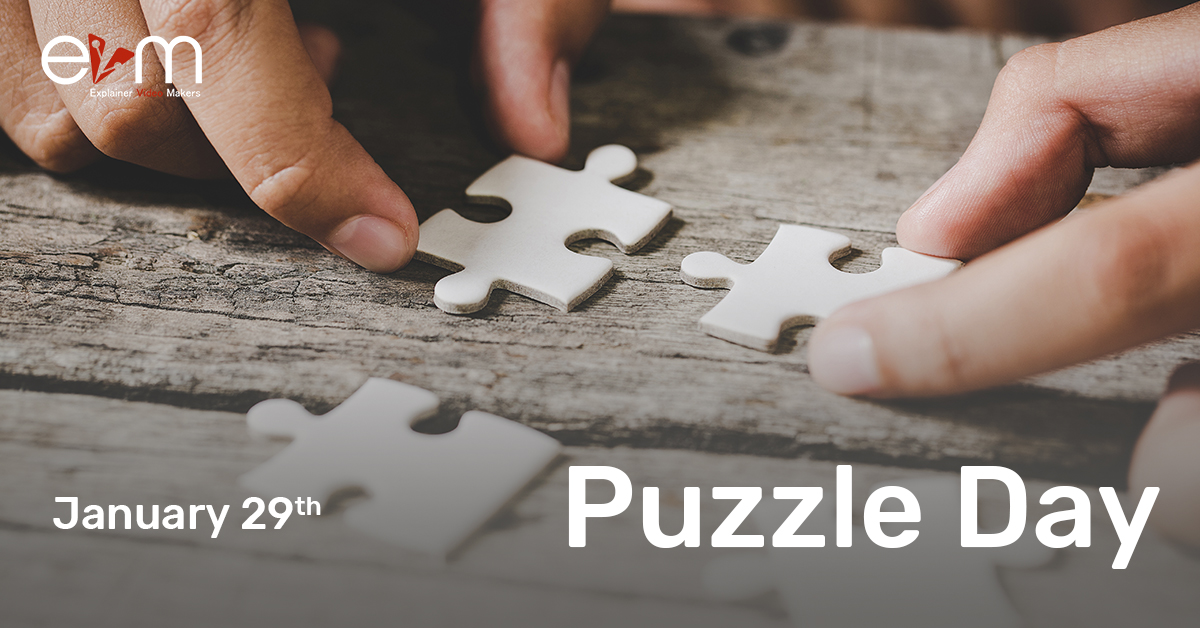
29th January: Puzzle Day
Celebrated every year on January 29, honors the puzzle day of all stripes – jigsaws, riddles, science, math, mechanical, and word puzzles, and of course, real-life puzzles.
Whether it’s a crossword, jigsaw, trivia, word searches, brain teasers or Soduku, puzzles put our minds to work. Studies have found that when we work on a jigsaw puzzle, we use both sides of the brain. And spending time daily working on puzzles improves memory, cognitive function, and problem-solving skills.
Word searches and crossword puzzles have the obvious benefit of increasing vocabulary and language skills. Sudoku, a puzzle sequencing a set of numbers on a grid, exercises the brain as well. By testing memory and logical thinking, this puzzle stimulates the brain and can improve number skills.
Puzzles also offer social benefits. When we work on these brain teasers with someone, we improve our social interactions. Whether we join a group or play with our children, those interactions keep us socially active and teach our children social skills, too. Even working them quietly together provides an opportunity to focus the mind in a meditative way that isn’t forced.
The bottom line is, puzzles stimulate the brain, keeping it active, and practicing its skills.

 We can help you.
We can help you. 